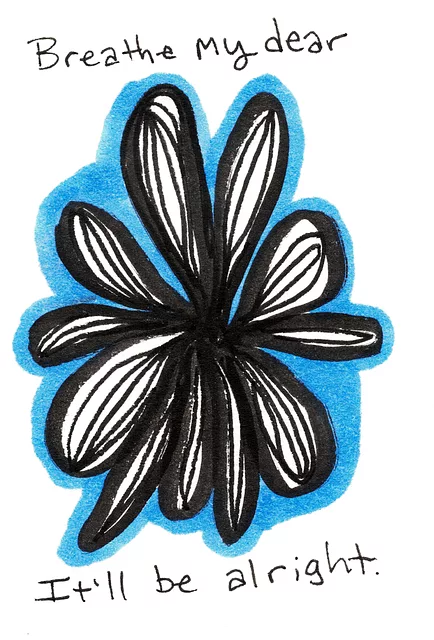Kaiser's inpatient mental health center in Wheat Ridge prioritizes cultural competency through comprehensive training for healthcare providers. This approach, focusing on understanding diverse cultures and beliefs, improves patient outcomes and creates an inclusive environment. Training includes role-playing scenarios, case studies from various populations, feedback sessions, and mindfulness workshops, ensuring staff are equipped to handle complex issues like cultural clashes and staff burnout. By addressing individual cultural backgrounds, Kaiser offers tailored care, enhancing patient satisfaction and health outcomes in their Wheat Ridge facility.
“Cultural competency training is an indispensable aspect of modern healthcare, ensuring providers can offer quality care to a diverse patient population. This article explores this critical topic, focusing on Kaiser’s innovative approach to inpatient mental health services in Wheat Ridge. We delve into the strategies and benefits of their cultural competence initiatives, particularly highlighting improvements in patient outcomes and experiences. By understanding cultural nuances, healthcare providers can provide more personalized and effective treatment.”
- Understanding Cultural Competency in Healthcare: A Necessity in Modern Medicine
- Kaiser's Approach to Inpatient Mental Health Care and Cultural Competence
- Strategies for Effective Training: Enhancing Patient Outcomes and Experience
Understanding Cultural Competency in Healthcare: A Necessity in Modern Medicine

In today’s diverse healthcare landscape, cultural competency is no longer an optional skill for medical professionals; it’s a necessity. Understanding and respecting different cultures, ethnicities, and backgrounds are essential aspects of providing quality patient care. This concept ensures that healthcare providers can effectively communicate with and treat patients from various environments, addressing their unique needs and concerns. For instance, at facilities like the Kaiser inpatient mental health center in Wheat Ridge, cultural competency plays a pivotal role in enhancing patient outcomes and fostering an inclusive environment.
Cultural competency goes beyond basic communication; it involves recognizing and appreciating diverse beliefs, values, and practices that may influence healthcare-seeking behaviors. Medical professionals who undergo specialized training in this area are better equipped to navigate complex situations, such as Burnout Prevention among culturally diverse staff or addressing Mood Management issues stemming from cultural clashes. Social Skills Training is another crucial component, enabling providers to build strong relationships with patients and colleagues from different backgrounds, ultimately improving healthcare delivery and patient satisfaction.
Kaiser's Approach to Inpatient Mental Health Care and Cultural Competence

Kaiser’s approach to inpatient mental health care in Wheat Ridge emphasizes a comprehensive and culturally competent model. The organization recognizes the diverse backgrounds and needs of patients, ensuring that their mental health services are tailored to reflect these differences. By integrating cultural competency into their training programs, Kaiser empowers its healthcare providers to offer more personalized and effective treatment plans.
This strategy involves ongoing education and development for mental health professionals, focusing on areas like risk assessment, stress management, and mindfulness meditation techniques. The Stress Management Workshops Organization within Kaiser facilitates these sessions, aiming to enhance the ability of staff to address the unique challenges faced by patients from various cultural backgrounds. Such initiatives not only improve patient outcomes but also foster a more inclusive and supportive environment in the inpatient mental health setting.
Strategies for Effective Training: Enhancing Patient Outcomes and Experience

Effective cultural competency training for healthcare providers is a multifaceted strategy aimed at enhancing patient outcomes and experiences, especially in diverse communities like those served by facilities such as does Kaiser have inpatient mental health Wheat Ridge. Training should focus on several key areas to ensure comprehensive understanding and skill development. Role-playing scenarios can help providers navigate complex situations involving emotional regulation, anxiety relief, and self-esteem improvement, fostering empathy and cultural sensitivity.
Additionally, incorporating real-world case studies from diverse populations allows trainees to apply their knowledge in practical settings. This approach not only deepens learning but also prepares them to offer tailored care that respects and values individual cultural backgrounds. Regular feedback sessions, peer discussions, and ongoing evaluation ensure the training remains impactful and relevant, ultimately contributing to improved patient satisfaction and health outcomes.
Cultural competency training is no longer an optional aspect of healthcare; it’s a necessity. As demonstrated by Kaiser’s successful implementation in their Wheat Ridge inpatient mental health care services, such programs significantly enhance patient outcomes and experiences. By understanding cultural nuances and integrating effective strategies, healthcare providers can create more inclusive and accessible environments for diverse patient populations. These efforts not only foster better mental health outcomes but also contribute to a more equitable and compassionate healthcare system overall.






